
The University of North Carolina at Chapel Hill is a public research university in Chapel Hill, North Carolina. The flagship of the University of North Carolina system, it is considered a Public Ivy, or a public institution which offers an academic experience equivalent to an Ivy League university. After being chartered in 1789, the university first began enrolling students in 1795, which also allows it to be one of three schools to claim the title of the oldest public university in the United States. Among the claimants, the University of North Carolina at Chapel Hill is the only one to have held classes and graduated students as a public university in the eighteenth century.
The Highlander Research and Education Center, formerly known as the Highlander Folk School, is a social justice leadership training school and cultural center in New Market, Tennessee. Founded in 1932 by activist Myles Horton, educator Don West, and Methodist minister James A. Dombrowski, it was originally located in the community of Summerfield in Grundy County, Tennessee, between Monteagle and Tracy City. It was featured in the 1985 documentary film, You Got to Move. Much of the history was documented in the book Or We'll All Hang Separately: The Highlander Idea by Thomas Bledsoe.
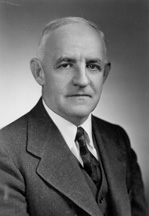
Frank Porter Graham was an American educator and political activist. A professor of history, he was elected President of the University of North Carolina at Chapel Hill in 1930, and he later became the first President of the consolidated University of North Carolina system.

The Confederate Monument, University of North Carolina, commonly known as Silent Sam, is a bronze statue of a Confederate soldier by Canadian sculptor John A. Wilson, which stood on the historic McCorkle Place of the University of North Carolina at Chapel Hill (UNC) from 1913 until it was pulled down by protestors in 2018. Its former location has been described as "the front door" of the university and "a position of honor".
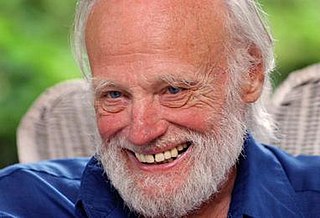
John Marsden Ehle, Jr. was an American writer known best for his fiction set in the Appalachian Mountains of the American South. He has been described as "the father of Appalachian literature".
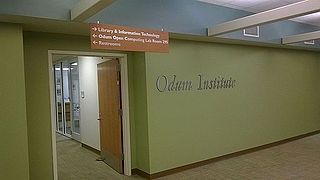
Howard Washington Odum was an American sociologist and author, publishing three novels in addition to 20 scholarly texts. Beginning in 1920, he served as a faculty member at the University of North Carolina, founding the university press, the journal Social Forces, and what is now the Howard W. Odum Institute for Research in Social Science, all in the 1920s. He also founded the university's School of Public Welfare, one of the first in the Southeast. With doctorates in psychology and sociology, he wrote extensively across academic disciplines, influencing several fields.

The Southern Oral History Program (SOHP), located in the Love House and Hutchins Forum in the historic district of Chapel Hill, North Carolina, is a research institution dedicated to collecting and preserving oral histories from across the southern United States.

The University of North Carolina at Chapel Hill is a coeducational public research university located in Chapel Hill, North Carolina, United States. It is one of three schools to claim the title of the oldest public university in the United States. The first public institution of higher education in North Carolina, the school opened on February 12, 1795.
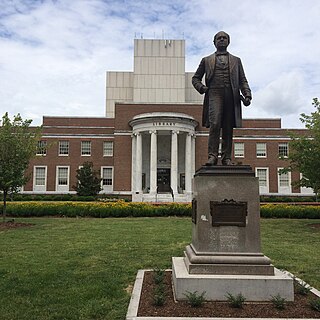
The University of North Carolina at Greensboro University Libraries system has two branches on campus, both located in Greensboro, NC. These include the Walter Clinton Jackson Library and the Harold Schiffman Music Library. Affiliated campus libraries include the Teaching Resource Center and SELF Design Studio in the School of Education, the Interior Architecture Library in the Gatewood Studio Arts Building, and the Intercultural Resource Center located in the Elliot University Center. During the fall and spring semesters, Jackson Library provides a 24/5 study space for UNCG students, faculty and staff with UNCG ID from 12 am Monday – 7:00 am Friday. Dr. Martin Halbert is the current Dean of the libraries.
Olive "Polly" Matthews Stone was a sociologist whose interests focused on human welfare, race relations, and southern American farmers. Stone was born in Dadeville, Alabama, and attended Huntingdon College in Montgomery, Alabama. She taught at various schools before earning her Ph.D. in sociology from UNC-Chapel Hill in 1939, including Alabama College, Huntingdon College, Brookings Institution, UNC-Chapel Hill, College of William and Mary, and Richmond School of Social Work. She later worked as a professor of sociology at Georgia State College for Women, and as an associate professor at the School of Social Welfare, University of California at Los Angeles. Stone also traveled throughout India, China, and Japan for the Fellowship of Reconciliation during 1931-1932 to observe group relations and tensions.
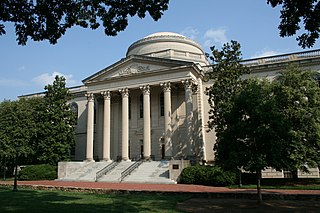
Sturgis Elleno Leavitt (1888–1976) was the Kenan Professor of Spanish at the University of North Carolina, the author of many books on Spanish language and literature, the president of several Spanish language teaching organizations, an adviser to the U.S. State Department and for many years the chairman of the Southern Humanities Conference as well as editor of the Hispanic Review.
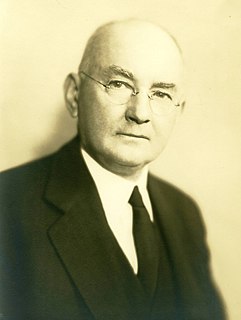
Louis Round Wilson was an important figure to the field of library science, and is listed in “100 of the most important leaders we had in the 20th century,” an article in the December 1999 issue of American Libraries. The article lists what he did for the field of library science, including founding the library school at the University of Chicago, directing the library at the University of North Carolina/Chapel Hill, and as one of the “internationally oriented library leaders in the U.S. who contributed much of the early history of the International Federation of Library Associations and Institutions.” The Louis Round Wilson Library is named after him.
John Sprunt Hill was a North Carolina lawyer, banker and philanthropist who played a fundamental role in the civic and social development of Durham, North Carolina, the expansion of the University of North Carolina at Chapel Hill and the development of rural credit unions in North Carolina during the first half of the 20th Century.
Arthur Franklin Raper was an American sociologist. He is best known for his research on lynching, sharecropping, and rural development.

The Louis Round Wilson Library is a library at the University of North Carolina at Chapel Hill. Completed in 1929, it served as the university's main library until 1984. Today, it houses several special collections. The dome rises 85 feet over the university's South Quadrangle.
Joseph Grégoire de Roulhac Hamilton (1878–1961) was an American historian of the South, author, and the founder of the Southern Historical Collection at the University of North Carolina at Chapel Hill, North Carolina, where he spent most of his academic career. He published books and articles about the history of Reconstruction but his most influential role was as an archivist, collecting manuscripts from around the South that form the core of the Southern Historical Collection.
Henry Roland Totten was an American botanist.

The Southern Folklife Collection is an archival resource at the University of North Carolina at Chapel Hill, dedicated to collecting, preserving and disseminating traditional and vernacular music, art, and culture related to the American South. The Southern Folklife Collection is located in UNC's Louis Round Wilson Special Collections Library.

The North Carolina Collection is the largest collection of traditional library materials documenting a single state. It is part of the Louis Round Wilson Special Collections Library at the University of North Carolina at Chapel Hill. The origins of the collection began in 1844 with the creation of the North Carolina Historical Society. The collection formally came into existence after a donation from John Sprunt Hill in 1930 totaling $25,000. The collection includes The Thomas Wolfe Collection and The Sir Walter Raleigh Collection.
The Student Health Coalition (SHC), also known as the Appalachian Student Health Coalition, was an organization founded at Vanderbilt University in 1969 to provide health care to low-income, medically underserved communities in Appalachia, particularly East Tennessee, and later expanded to communities in Nashville and West Tennessee.













